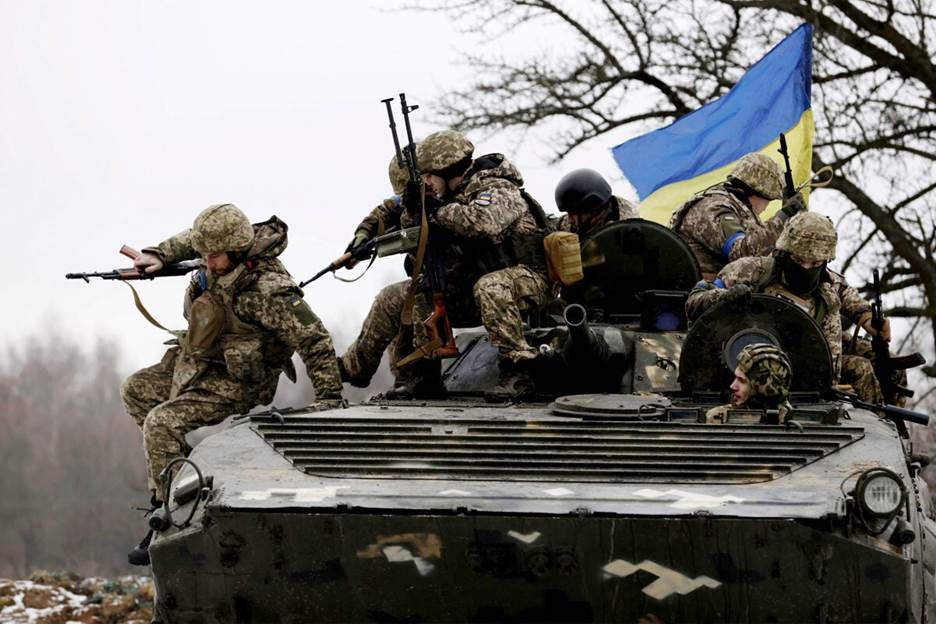
Ukraine has resisted any calls for negotiations in which Russia keeps parts of Ukraine permanently. The Ukrainians will probably strike toward the south, between the Crimea and the Russian-held territory in the Donbas to the east. Such a move, if successful, will isolate Crimea and lead to its recapture by Ukraine – Harvard Gazette
Ukraine Will Go for Victory in May
By Nayyer Ali MD

The Russian invasion of Ukraine is now just over a year old, and Putin is running out of cards to play. His attempt to seize control of Ukraine in a lightning strike of armored forces was blunted in the first few weeks of the war by a combination of poor planning, Ukrainian courage, and Western anti-tank weapons, particularly American Javelin and British NLAW missiles. After withdrawing from the northern regions of Ukraine last spring, Russia has suffered one defeat after another. The sinking of the cruiser Moskva, the flagship of the Russian Black Sea Fleet, was the biggest symbolic loss. But Russian forces were pushed out of the regions near Kharkhiv in the fall, and the west bank of the Dnieper in the south as winter was setting in.
For the last three months the front lines have been basically static. But underneath what looks like stasis a lot of furious activity has been taking place. Putin attempted to take out Ukraine’s electric grid with precision missile and drone strikes on power plants. While that caused severe power outages, they were temporary, and Ukraine has been able to keep the lights on. Meanwhile, it appears that Putin has exhausted his stockpile of precision long range weapons, and the Ukrainians have figured out how to detect and destroy the Iranian made drones that Russia has been using.
Putin called up several hundred thousand Russian recruits to reinforce his army last fall. But these raw troops have received little training or equipment and have been used as cannon fodder in a series of pointless assaults that have gone nowhere. In particular, the Russians have been pressing heavily on the small town of Bakhmut, and the Ukrainians have reinforced and resisted rather than withdraw. They appear to think that Russian losses are enormous in this battle and so are willing to extend the fight for this otherwise strategically pointless location.
Where does the war go from here? With winter weather lifting in the next six weeks, the open fields will no longer be impassable due to mud, and men and equipment will be able to operate more effectively. Ukraine has been training and equipping a strike force of about 30,000 soldiers. The transfer of Western tanks and personnel carriers, in particular German Leopard 2 tanks and the American Bradley Infantry Fighting Vehicle, will give the Ukrainians the advanced equipment needed to go on the offensive.
The Russians have been using this winter to create a belt of fortifications along the frontlines. These entrenched positions are supposed to make a Ukrainian offensive fail. But fixed positions can be a deathtrap if an opponent can conduct powerful precision strikes. The Ukrainians have used the HIMARS rocket system to great effect, but it does not have the power or range that airstrikes could give. While the US has so far not been willing to give Ukraine F-16 fighters, it has allowed Ukraine to have access to JDAM guided bombs. These are powerful weapons and can be carried by existing MiG 29 Ukrainians fighter jets. The planes can approach a target, go into a climb, and release the bombs. The JDAM’s can then be sent to precise GPS guided coordinates over 50 miles away. With this weapon system, Ukraine can hit Russian positions without having to send its fighter jets into Russian controlled airspace.
The timetable for all these elements coming together points toward May. Ukraine knows that the Western appetite for a struggle with Russia is not limitless. They need to show that they can not only hold off the Russians but can actually defeat them on the battlefield. Ukraine has resisted any calls for negotiations in which Russia keeps parts of Ukraine permanently. The Ukrainians will probably strike toward the south, between the Crimea and the Russian-held territory in the Donbas to the east. Such a move, if successful, will isolate Crimea and lead to its recapture by Ukraine. At that point the Russians will have clearly lost the war, and will look to end it.
A Russian defeat is a key US priority. With Russia defeated, the US will be free to pivot entirely to containing China. Once this defeat happens the fate of Russia will be hard to predict.
The Soviet Union collapsed into 15 different countries in 1991. But Russia is not purely Russian. It has large minority populations scattered throughout its landmass. Chechnya is perhaps the best known, but there are several others. Will Russian defeat lead to the collapse of the Putin regime and the disintegration of Russia? Can a liberal democratic Russia be rebuilt from this collapse, just as the East European nations transitioned to liberal democracies and joined the West in the 1990’s? Or will the most likely outcome be an authoritarian and corrupt state that continues the Putin system but without Putin?

